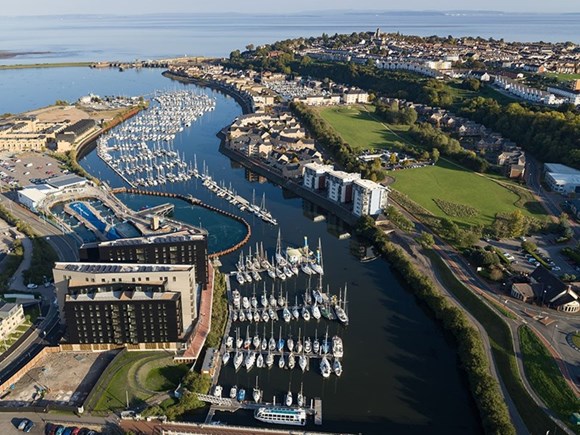
British Marine report highlights ‘post-pandemic bounceback’
British Marine has released its latest Key Performance Indicators (KPI) report for the 2021/22 financial year, detailing a range of economic trends and statistics from across the UK leisure, superyacht and small commercial marine industry, which confirm that the marine industry enjoyed a successful post-pandemic bounce back.
“It is encouraging to see that the marine industry made a strong recovery post-pandemic, prospering in both domestic and international markets and highlighting the significant contribution the sector makes to the UK economy. These results show that the industry was in a strong position as we headed into more uncertain economic times in 2022/23”, says Lesley Robinson, CEO of British Marine.
The report includes data on marine industry revenue, full-time equivalent employment and gross value added to UK GDP, alongside international trade and national figures for business and consumer confidence. It also covers consumer inflation, household leisure spending and a range of other economic metrics relating to the financial performance of the UK economy and marine industry.
The report uses aggregated data shared by members, combined with internal knowledge of non-members involved in the marine industry and government statistics, to provide a robust economic audit of the industry.
The report finds the UK marine industry bounced back from a year plagued by pandemic disruptions with like-for-like revenue growth of 25 per cent in 2021/22. Total industry revenue was estimated at £4.23 billion – or 6.5 per cent above its pre-pandemic level (2019/20 financial year).
The industry’s direct GVA contribution to UK GDP is estimated to have grown 27 per cent to £1.57 billion in 2021/22, showcasing the significant added value that marine businesses create for the UK economy.
If we add to this the additional, indirect and induced economic contribution rendered by marine businesses through their employee and supply chain spending, as well as the hospitality spending of boating and watersports participants, the combined economic contribution of the marine industry is estimated to total £6.80 billion.
With the re-opening of international markets post-pandemic, UK marine exports made a strong recovery in 2021/22, according to the report — growing 13 per cent to £1.22 billion, powered by the sale of UK-made boats. Sailboat exports grew 40 per cent to £116 million, rigid inflatables increased 48 per cent to £30 million and overseas powerboat sales were up seven per cent to £574 million.
With domestic demand powering industry growth, imports also saw a robust increase in 2021/22, growing eight per cent year-on-year. The report shows sales were driven by local demand for powerboats, with inboard and outboard powerboat imports up 32 per cent to £109 million, rigid inflatables up 66 per cent to £39 million and outboard engines up 40 per cent to 22 million.
Full-time equivalent jobs are estimated to have increased 5 per cent to 38,100 in 2021/22, with early career training also seeing an increase as the industry’s profile grows. Government statistics show that apprenticeship starts have grown 36 per cent (to 4,100) since 2019/20. This has been driven by an increase in post-pandemic manufacturing, with boatbuilding and marine engineering apprenticeships up 27 per cent and 28 per cent, respectively.
This post-pandemic recovery has been driven by continued hunger for new and used boats at home and abroad, as well as marine equipment and accessories and ‘staycation’ boating experiences, as Britons continued to look to recreation on the water as an antidote to pandemic-related issues. The report shows these sectors experienced estimated revenue growth over the last year of 32 per cent, 34 per cent and 43 per cent, respectively, their highest on record.

Bayscape Cardiff. Image courtesy of British Marine
Of course, economic events have changed rapidly since the end of the 2021/22 financial year in April, with high inflation and deteriorating consumer spending power eroding this boom. UK consumer confidence sank to its lowest index score on record in October 2022 (91.5), with both consumers and businesses hit by a ‘cost of living’ crisis that has pushed the UK to the brink of recession. According to the latest government figures (ONS), monthly GDP year-on-year growth slumped from 11.6 per cent in January 2022 to 0.02 per cent in January 2023.
While the marine industry has been resilient through this latter period (January 2022-January 2023), generally outperforming the wider UK economy, it has not been immune to the financial challenges now affecting UK businesses. British Marine’s latest sentiment survey (December 2022) indicates that the share of marine businesses seeing quarterly sales growth (year-on-year) dropped from 52 per cent in Q1 2022 to 29 per cent in Q4 2022.
However, despite the decline in sales growth over the last six months, marine business confidence remained steady, with 49 per cent of British Marine members reporting in December that they were still optimistic about their prospects going into 2023. That is double the number of businesses pessimistic about their future.
“Overall, the report is reassuring; however, we must remain mindful that these figures related to 2021/2022 and the impact of the current ‘cost of living’ crisis and the overall financial challenges affecting many UK businesses may well have a future impact on the sector,” says Robinson.
British Marine members can access the full report for free on the British Marine website.
The post British Marine report highlights ‘post-pandemic bounceback’ appeared first on Marine Industry News.
